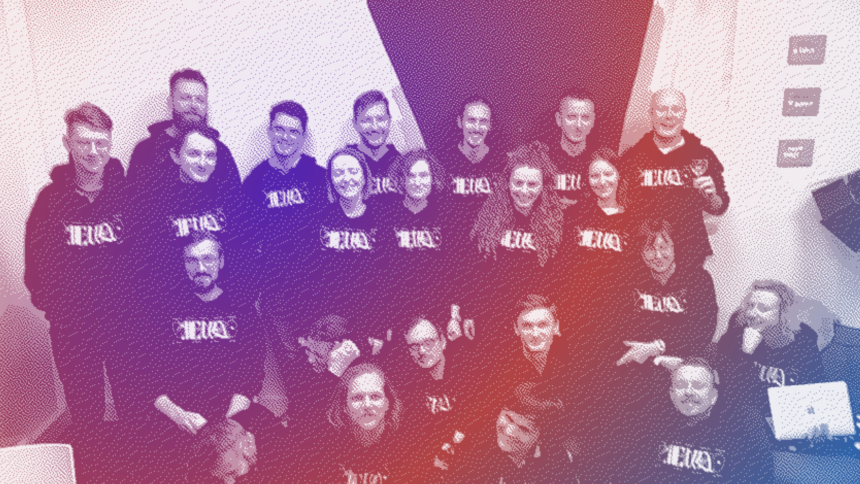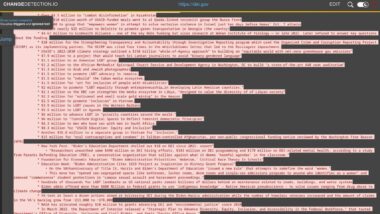The independent publication Meduza is no longer easily accessible in Russia. Meduza has been reporting from Latvia in Russian and English since 2014. Last year they were classified as a „foreign agent“ by the Russian Government.
Also, the journalists themselves are in danger because of their work. Meduza staff who has reported from Russia had to leave the country. In Russia, journalists face up to 15 years in prison if they report independently about the war. It is forbidden to name the war as such.
Financing at risk
Until now, Meduza was financed by the contributions of its 30.000 supporters, mainly from Russia. Now they can no longer count on that. This is because transfers to Europe are restricted. In order to be able to continue reporting independently on the war in Ukraine, they are therefore launching a crowdfunding campaign in cooperation with Krautreporter. Meduza will be financed by European supporters so that people in Russia can continue to inform themselves independently.
We spoke to Katerina Abramova from Meduza to find out how their current work in exile is going and how they continue to manage to reach millions of people in Russia. She is Head of Communication at Meduza and responsible for the current crowdfunding campaign.
netzpolitik.org: You started operations in Latvia in 2014. How did the situation change for you now? Did you have reporters in Russia before the war started?
Katerina Abramova: We have some staff here, some in Russia, some in different places. Because of Covid, we learned how to work absolutely remotely. And we have always been in different places. And of course, in Russia, too. Because the Reporters have to work on the ground. And in the end, of course, we were worried about the security of many people. So, some have gone, some are still there, but of course, it has changed. Everything has changed dramatically.
netzpolitik.org: Is there anybody left from the editorial team in Russia?
Katerina Abramova: Most of the people left Russia, but we still have reporters or freelance journalists, who work for us on the ground, both in Russia and Ukraine. You can’t do it without it. But of course, we understand that our team can’t be in Russia anymore because of this law of fake news. But still, it’s the reporters’ decision. And some freelancers who want to work on the ground, they do it.
netzpolitik.org: And where are the reporters that left Russia now?
Katerina Abramova: In different places. In very different places. Some are in Europe, some who don’t have a European visa are in third countries.
netzpolitik.org: How are you currently keeping up the editorial operations?
Katerina Abramova: We work a lot, 24 hours per day. We are the biggest independent medium in Russia, but our team is not really huge. We haven’t had night shifts in normal times. But now of course every night somebody is working, like photo editors or news editors. There is a lot of work to be done.
So now, of course, we are writing about war, and we are writing about what’s going on with the economy, social life, cultural life, and protests. Because Russian readers are also shocked and want to know what’s going on with all parts of their life inside. Now it’s not a problem not to be there. But I think we will figure it out afterward. Of course, a lot of processes will be changed, but it’s manageable. It can be done from different places and during Covid, a lot of Interviews were made online. Of course, it is difficult when you are not there, but it’s manageable.
Complicated access to independent news
netzpolitik.org: What does your everyday work look like right now?
Katerina Abramova: We have to continue our work in a normal way. Therefore, we are solving a lot of different organizational and security issues. But still, we’re working for our readers, so we have to do a good job.
One of our goals is to maintain high-quality journalism. And we have to explain all the time how people in Russia can continue to read us. And of course, we have to solve the question about money. Last year in April Russian government labeled us as foreign agents. Because of it, we lost all our advertising value.
We didn’t believe in crowdfunding, that it will be enough, but we tried and our readers saved us. But now people from Russia can’t support us, not because they are scared. And not because they are disappointed in our jobs.
It’s just because of technical reasons. Because credit cards, Visa, or Mastercard don’t work anymore. So we lost all our payments. That’s why we lounged this European campaign. Of course, there are Russians living abroad who read us, who support us, but mostly a huge part of our subscribers are people inside Russia. We work for them.
netzpolitik.org: What does it mean to be listed as a foreign agent in Russia?
Katerina Abramova: Literally they say that you work not in the interests of your country but in the interests of some other country. And it’s not true. We are working in interests of our readers.
We are based in Latvia, but it’s not a problem. Everybody knows that we are a foreign company. It’s not a secret, we are a foreign company that is transparent and pays taxes. A foreign agent is like an absolutely different situation. It’s like a sign to behave calmer, be more quite.
It’s like a big scary thing. They try to scare you, they try to scare your business, they try to scare your readers. But it’s not so important now, because all media in Russia are foreign agents or blocked or most of them both at the same time.
Difficult working conditions
netzpolitik.org: What are the difficulties you are facing now?
Katerina Abramova: Money, Security of people, recreation. Everybody is very tired. People work without days off. And it’s understandable that you can’t do it forever. You have to rest somehow and of course, we are all human beings. We are worried about this situation not only like journalists, not only about our job but also about what’s going on with people in Ukraine.
We are thinking about families, friends in Russia, their future, what are they allowed to do, and all this stuff. It’s also mixed up. It’s the job situation and besides you still are tired not only because of the job but also because of all these thoughts. You don’t understand what’s going to be next. So it’s also scary.
netzpolitik.org: How do you continue to reach people in Russia right now?
Katerina Abramova: A lot of people use VPNs and we see it. We are analyzing our data and traffic. And suddenly we have a huge amount of readers from the Netherlands or in Angola or someplace, where people don’t read Meduza usually. And we have our telegram channel. It’s not blocked yet, Telegram works. And there are more than 1 million subscribers now.
And we have an Instagram account. That was very popular. They blocked Instagram recently in Russia. So now it’s about what’s going to be with this platform. But now, like today and yesterday, people still read it, comment, and put likes, so we understand that a lot of people know how to use VPNs. We have a newsletter. Because it’s the last thing that can be blocked. You have to shut down the internet completely.
And there is a mobile app. There is a special technology that allows the readers to use it when our site is blocked. Of course, it’s like a bit slow, but still, you receive the news. But the most important thing is just to let people read news.
This article was first published in German: Russisches Exilmedium Meduza: „Alles hat sich dramatisch verändert“





0 Ergänzungen
Dieser Artikel ist älter als ein Jahr, daher sind die Ergänzungen geschlossen.